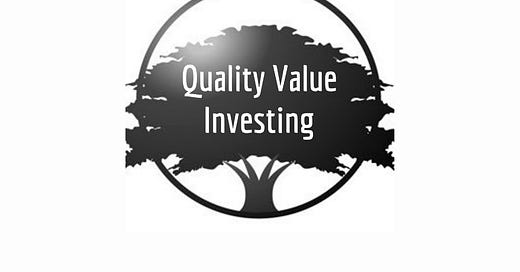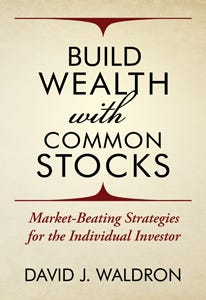Union Pacific Railroad (NYSE: UNP)
Quality Value Investing Research Report | $UNP Updated Coverage | November 2024
In this updated coverage research report, we reexamine the industrials sector company Union Pacific Corporation — UNP 0.00%↑ — to see if it continues to meet Quality Value Investing’s (QVI) Real-Time Stock Picks criteria based on our proprietary checklist analysis of the business’s current wealth and the share price’s present value.
Union Pacific | Company Current Wealth
Value Proposition
Union Pacific is a dividend-paying large-cap stock in the industrials sector’s rail transportation industry. It was added to the QVI Real-Time Stock Picks on August 9, 2010, at a $28.77 cost basis per share, adjusted for dividends.
Union Pacific Corporation, through its subsidiary, Union Pacific Railroad Company, operates in the freight railroad business in the western United States. The company was founded in 1862 and is headquartered in Omaha, Nebraska, USA.
Economic Moat
Morningstar assigns Union Pacific a wide moat rating based on its cost advantages and efficient scale, which it shares with the North American Class I railroads oligopoly.
QVI’s Value Proposition Elevator Pitch for UNP
Union Pacific owns arguably the highest quality business model in the North American freight rail oligopoly.
QVI’s value proposition rating for UNP: Bullish.
Returns on Management
Revenue Growth and Net Profit Margin
Per the table below, Union Pacific’s trailing three-year annualized revenue growth was high single-digit positive but underperformed the S&P 500 topline growth of 16.40%. In addition, the company’s positive revenue growth of +0.60% lagged the broader market’s +18.20% for the most recently reported twelve months.
Further down the income statement, Union Pacific had a mid-double-digit net profit margin from a 78.60% gross margin, outperforming the S&P 500’s net of 20.70% from a gross of 54.00%.
Returns on Equity and Invested Capital
Union Pacific’s senior management produced a return on equity, or ROE, triple QVI’s targeted threshold and aligned with the S&P 500’s ROE of 56.40%.
Stock buyback programs often elevate ROE, and in September, Union Pacific’s board of directors authorized $4-5 billion of future share repurchases, including the use of borrowed funds.
Union Pacific’s return on invested capital, or ROIC, was under QVI’s threshold and trailed the broader market’s 23.10% return. Moreover, the company’s ROIC barely exceeded its weighted average cost of capital, or WACC, demonstrating that its senior executives are average capital allocators (Source of WACC: GuruFocus).
QVI’s business fundamentals rating for Union Pacific: Neutral.
Next, we’ll look at the company’s enterprise downsize risks, the stock price’s present value, including share price downside risks, and the investment thesis, each exclusive to Quality Value Investing’s premium (paying) subscribers.
Cyber Week Deals on my fourth book, Build Wealth with Common Stocks, are available now through December 2, 2024.
“Investing advice is fairly commonplace, but here the author shares his own unique investment wisdom that readers will not find elsewhere.” —Critic's Report, The BookLife Prize (Publishers Weekly)
Learn more at https://davidjwaldron.substack.com/p/bookstore
Unless noted, all data presented is sourced from Charles Schwab & Co. and Yahoo Finance as of the intraday market on November 26, 2024, and intended for illustration only.
Disclosure: As of the date of this research report, I/we held a beneficial long position in UNP common shares in our family portfolio. I wrote this report myself, and it expresses my own opinions. I am not receiving compensation for it other than from Substack paid subscriptions. I have no business relationship with any company whose stock is mentioned in this post.
Additional Disclosure: Quality Value Investing by David J. Waldron’s primary ticker research reports are for informational purposes only. The accuracy of the data cannot be guaranteed. Narrative and analytics are impersonal, i.e., not tailored to individual needs nor intended for portfolio construction beyond his family portfolio, which is presented solely for educational purposes. David is an individual investor and author, not an investment adviser. Readers should always engage in independent research or due diligence and consider, as appropriate, consulting a fee-only certified financial planner, licensed discount broker/dealer, flat fee registered investment adviser, certified public accountant, or specialized attorney before making any investment, income tax, or estate planning decisions.
Keep reading with a 7-day free trial
Subscribe to Quality Value Investing to keep reading this post and get 7 days of free access to the full post archives.






